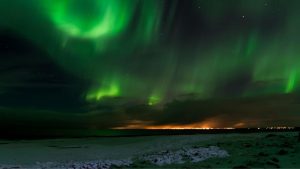AI-driven deepfake sites that ‘undress’ women and girls face landmark lawsuit
San Francisco officials filed a landmark lawsuit against popular deepfake websites that use artificial intelligence to undress images of clothed women and girls.
The city attorneys office is suing 16 of the most viewed AI undressing sites which were collectively visited more than 200 million times in just the first half of 2024, the suit said.
The websites allow users to upload images of real, clothed people which the AI then undresses and turns into fake nude images.
[I]magine wasting time taking her out on dates, when you can just use [our website] to get her nudes, one of the deepfake websites said, according to the lawsuit.
The lawsuit said the deepfake nudes are made without consent and are used to intimidate, bully and extort women and girls in California and across the country.
This investigation has taken us to the darkest corners of the internet, and I am absolutely horrified for the women and girls who have had to endure this exploitation, San Francisco City Attorney David Chiu said in a statement.
This is a big, multi-faceted problem that we, as a society, need to solve as soon as possible, he said.
The undressing sites have broken federal and state laws banning revenge pornography, deepfake pornography and child pornography, the lawsuit said.
The suit claimed the defendants also broke Californias unfair competition law because the harm they cause to consumers greatly outweighs any benefits associated with those practices.
The city attorneys office is seeking civil penalties and the removal of the deepfake websites, as well as measures to prevent the site owners from creating deepfake pornography in the future.
The lawsuit referenced a case from February 2024, when five students were expelled from a California middle school after creating and sharing AI-generated nude images of 16 eighth-grade students.
I feel like I didnt have a choice in what happened to me or what happened to my body, a victim of deepfake nudes said, according to the lawsuit.
Another said she and her family live in hopelessness and perpetual fear that, at any time, such images can reappear and be viewed by countless others.
The lawsuit is the first to take on deepfake nude generators head-on.
As the AI industry ramps up, deepfakes or AI-generated and manipulated images have become more mainstream.
AI-generated images can often spread misinformation like wildfire.
A deepfake of Pope Francis in a white Balenciaga puffer jacket went viral in 2023 which many believed was real until news outlets began reporting otherwise.
But often, deepfakes turn sinister.
Fake nude images of children landed at the top of some search results on Microsoft and Google engines, according to an NBC News report in March.
Non-consensual deepfake nudes of celebrities like Taylor Swift have circulated the web.
The AI-generated nude images can often lead to sextortion schemes, when a victim is forced to pay money to prevent the release of fake images.
We have to be very clear that this is not innovation this is sexual abuse, Chiu said. We all need to do our part to crack down on bad actors using AI to exploit and abuse real people, including children.





